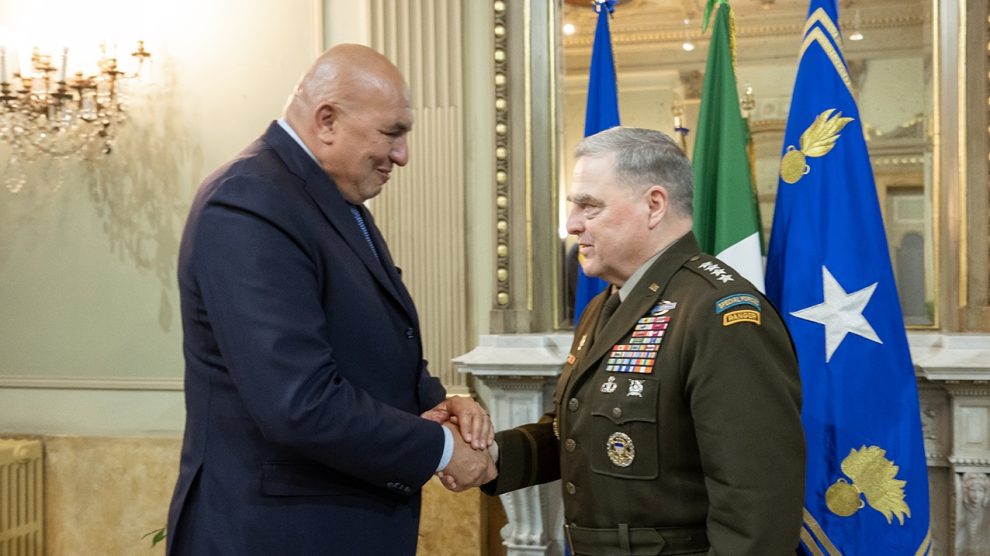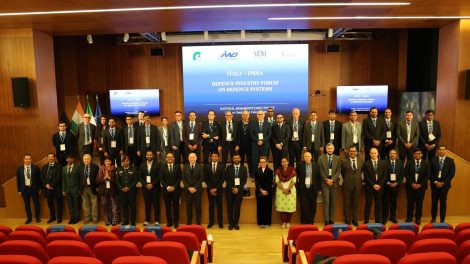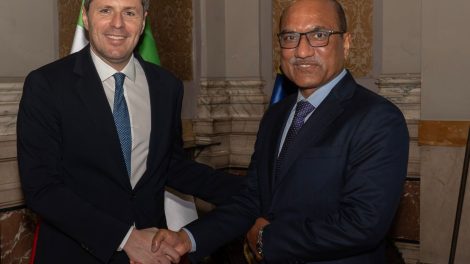Focussing on Africa. For the first time in eight years, a US Chairman of the Joint Chiefs of Staff is travelling to Europe and Africa within the same mission. General Mark Milley’s visit began in Rome on Tuesday, where he met with Italian Defence Minister Guido Crosetto.
- Bilateral relations between Italian and US Defence are “strong” and of “high strategic importance,” tweeted the Italian Defence Ministry, noting their “cordial conversation” focussed on the international situation, the Ukraine crisis and NATO’s Southern Flank.
The US’s line. While in Rome, General Milley took part in the African Chiefs of Defence Conference 2023, hosted by the Italian Defence. The international meeting was a chance for Rome and Washington’s defence apparatuses to speak with African partners about shared opportunities and challenges on the continent…
- … such as non-state actors seeking to destabilise nations and undermine the rule of law. This concern touches on the role of strategic rivals such as Russia, which is present across Africa through hybrid forces such as the Wagner Group.
Terrorism remains a scourge. Meanwhile, the US remains strongly interested in counter-terrorism and counter-insurgency activities, aiming to curb the spread of armed groups – many of them jihadist in nature, including Al-Shabaab in Somalia, al-Qaeda and the Islamic State in the Sahel – which continue to operate across the continent.
- As noted in the latest annual report published by the Italian intelligence agencies, sub-Saharan Africa “now stands as the new true epicentre of global jihad.” With 3,241 events of a terrorist nature and 5,241 victims, it was the continent’s most affected area in 2022 –not counting the 2,365 attacks with 3,397 victims in the Horn of Africa.
The European meeting. As General Milley led military diplomacy activities with his African colleagues, sixteen of the EU’s defence ministers – plus the EU’s High Representative for Foreign Affairs and Security Policy, Josep Borrell – met virtually to discuss the current political situation and security environment in Africa.
- Their topics overlapped with the Roman conference in several areas, such as Mali and Burkina Faso – where Russian penetration has forced Europe to temporarily curb its presence. This has led to popular protests over the lack of capacity to deal with and manage emerging security issues, creating a fertile climate for coups.
- The coup plotters often preferred to espouse Wagner’s support, opening up Russian penetration into the local political, economic and socio-cultural fabric. Penetration has spread by pushing anti-Western narratives – which have taken root more quickly due to the deterioration of living conditions that the security (and political-institutional) crises have triggered.
Italy’s line. In his speech, Italian Minister Guido Crosetto, who has repeatedly emphasised the need for Europe to be present and active in Africa, underlined how the dynamics linked to terrorist, criminal and paramilitary organisations (“through which foreign powers are trying to increase their influence”) reverberate as far as Europe.
- The African continent, also due to its geographical extension, presents complex and relevant issues that require cooperation between African countries and all Western partners, he stressed, proposing development plans and multilateral and multidisciplinary approaches.
- Italy, for instance, projects itself in the region with the so-called Mattei Plan, an integrated approach touching on various security components, from energy and food security to counter-insurgency and countering the penetration of rival actors.
- “We are convinced that Europe must promote stronger partnerships and more concrete neighbourhood policies,” Minister Crosetto added, recalling the importance of developing solid relations, based on long-term projects, with the main African countries.





